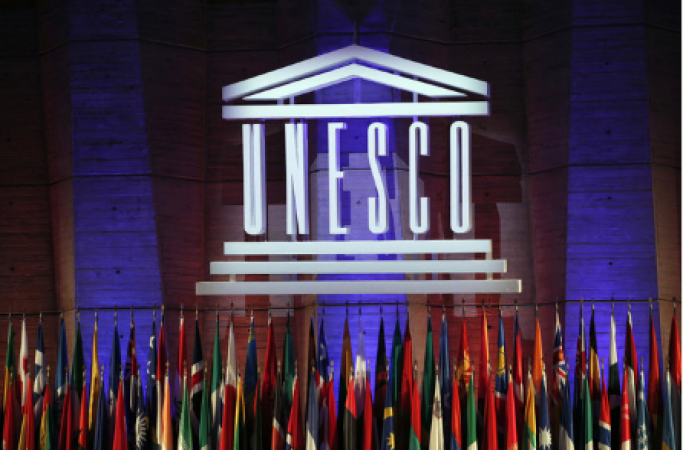
Paris: After a decade-long dispute sparked by the organization's decision to admit Palestine as a member, UNESCO announced on Monday that the United States plans to rejoin and pay more than $600 million in back dues.
According to US officials, the decision to return was driven by worry that China is stepping in to fill the policymaking void left by the US at UNESCO, particularly in setting standards for artificial intelligence and technology education globally.
Last week, US Deputy Secretary of State for Management and Resources Richard Verma formally announced the decision to rejoin UNESCO in a letter to Director General Audrey Azoulay.
Also Read: US military reports 22 service members hurt in helicopter accident in Syria
Delegate after delegate rose to applaud Azoulay's announcement of the plan to ambassadors at a special meeting on Monday as applause erupted in the solemn UNESCO auditorium.
A vote by the 193 member states of the organisation, including the US, which was once its largest donor, is anticipated to take place next month, according to a UNESCO diplomat.
The United Nations Educational, Scientific, and Cultural Organisation, well-known for its World Heritage programme as well as initiatives to combat climate change and teach girls to read, will benefit financially greatly from the decision.
After Palestine was approved as a member state by UNESCO in 2011, the US and Israel ceased funding the organisation, and both nations were denied the right to vote in 2013. In 2017, the Trump administration made the decision to completely leave the agency, citing anti-Israel bias and management issues.
Verma mentioned management reform initiatives by UNESCO in his letter from last week, as well as "declining politicisation of debate, especially on Middle East issues." Last week, a Washington delegation travelled to Paris to personally deliver the letter that the AP had been given.
Azoulay has worked to address the reasons the US left through budget reforms and fostering agreement among Jordanian, Palestinian, and Israeli diplomats on contentious UNESCO resolutions ever since she was elected in 2017.
Also Read: Russia attacks Kryvyi Rih in central Ukraine with "massive missiles."
The US's decision to return "is the result of five years of work, during which we reduced tensions, particularly in the Middle East, improved our response to modern challenges, resumed significant ground-level initiatives, and modernised the organization's operations," Azoulay said.
According to a UNESCO diplomat, she met with Democrats and Republicans in Washington to discuss those efforts. Regardless of who wins next year's presidential election, UNESCO diplomats expressed confidence that the US decision to return is one that will be made for the long term as a result of those bipartisan negotiations.
The diplomats were not permitted to discuss the behind-the-scenes work that resulted in the US decision in public.
Verma's letter states that the plan calls for the US government to pay its 2023 dues along with $10 million in bonus payments this year that will be used to support Holocaust education, Ukrainian cultural heritage preservation, journalist safety, and science and technology education in Africa.
The Biden administration has already asked for $150 million for UNESCO dues and back payments in the 2024 budget. Similar requests will be made in the upcoming years up until the $619 million debt is fully repaid, according to the plan.
That accounts for a sizable portion of the $534 million annual operating budget for UNESCO. Before leaving, the US provided 22% of the total funding for the organisation.
The US's absence from UNESCO, according to Undersecretary of State for Management John Bass, has strengthened China and "undermines our ability to be as effective in promoting our vision of a free world."
He claimed that UNESCO plays a significant role in establishing and influencing global norms for science and technology education, and that "if we're really serious about the digital-age competition with China... we can't afford to be absent any longer."
The agency's financial situation became uncertain due to the US's absence. Diplomats from UNESCO described tight budgets for all of the organization's programmes and aggressive initiatives by Azoulay to increase voluntary financing from other nations to fill in the gaps.
The return of the US, hoped one diplomat, would bring "more ambition, and more serenity" and rekindle initiatives to control artificial intelligence, educate girls in Afghanistan, and document slaves in the Caribbean.
The diplomat declared that if Israel wanted to rejoin, the organisation would also "welcome" it back.
Also Read: China conducts live-fire drills north of Taiwan in the East China Sea
Previously, the United States withdrew from UNESCO in 1984 during the Reagan administration because it believed the organisation to be poorly run, corrupt, and used to further Soviet interests. It came back in 2003.